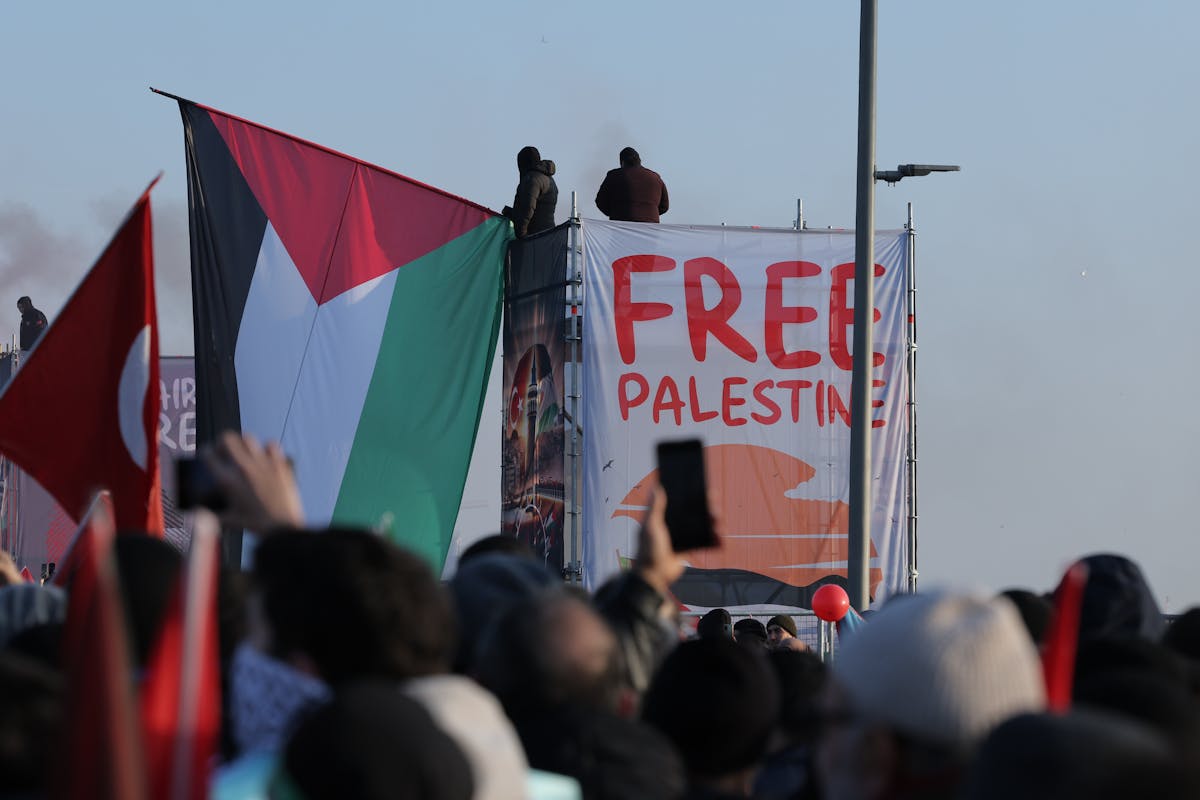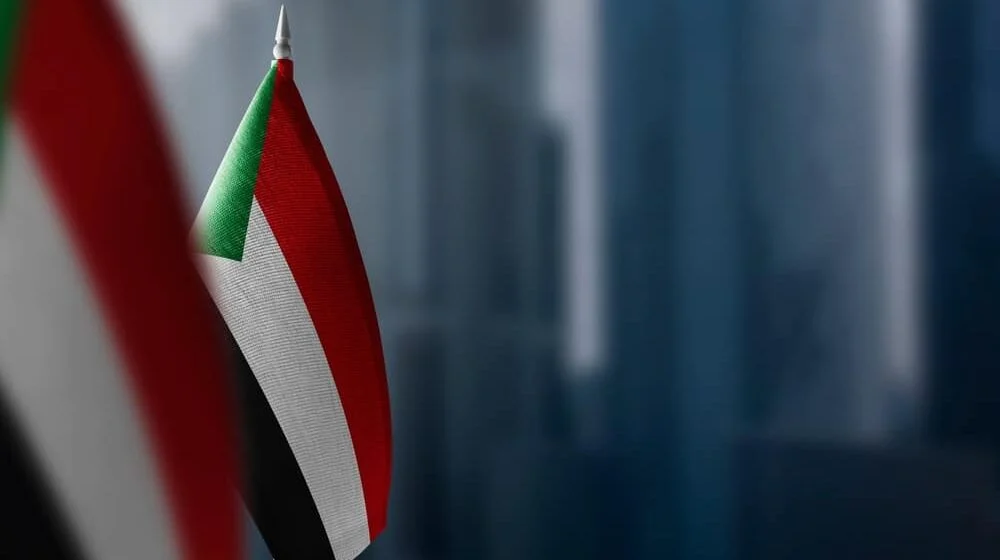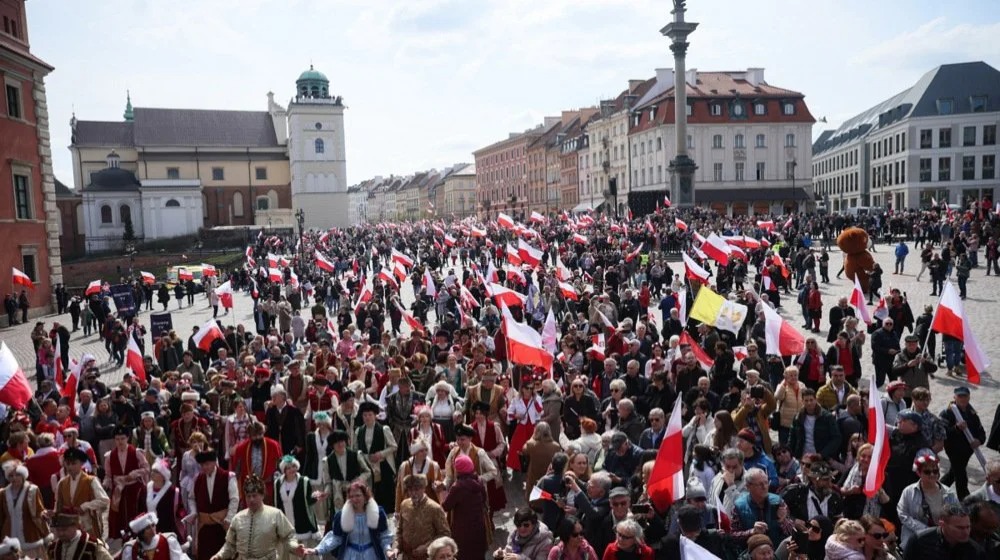
What is the Palestinian Nakba and why is it important?
The war in Gaza and Israeli plans for the forced displacement of more Palestinians remind many of the Nakba, which Palestinians commemorate every year on May 15. But what exactly is it?
What does Nakba mean?
The Arabic word Nakba means catastrophe. In the context of the Israeli-Palestinian conflict, the term Nakba or Al Nakba refers to Palestinians who lost their homeland during or after the Arab-Israeli War in 1948.
It is estimated that around 700,000 people in the area that is today Israel either fled or were expelled from their homes. Many Palestinian refugees abroad have remained stateless to this day.
By the end of the war, about 700,000 Palestinians had left or been expelled from their homes.
What is Nakba Day?
On May 15, 1948, the Arab-Israeli war began, and it has long been the day when Palestinians take to the streets and protest against displacement.
Many carry Palestinian flags, bring keys to their former homes, or hold banners with key symbols. The keys symbolize the hope of returning home and what the community sees as their right to return.
In the past, some protests have escalated into violent clashes. Israel accuses Hamas and other organizations, which are listed as terrorist organizations in the European Union and elsewhere, of using this day to promote their goals.
The term "Nakba Day" was coined in 1998 by then Palestinian leader Yasser Arafat. He designated that date as the official day to commemorate the loss of the Palestinian homeland.
Why did the Palestinians have to leave?
Until the end of World War I, Palestine was under Turkish rule as part of the Ottoman Empire. Afterwards, it came under British control, known as the "British Mandate".
During that period, an increasing number of Jews from around the world immigrated to the area, considering it their ancestral homeland: Eretz Israel, the Promised Land where Jews had always lived, although they were a minority at the time.
After the experience of the Holocaust in Nazi Germany, the UN General Assembly adopted the "Palestine Partition Plan". The Arab League rejected this plan, but the Jewish Agency for Palestine accepted it, and on May 14, 1948, the state of Israel was proclaimed.
In response, a coalition of five Arab states declared war, but was ultimately defeated by Israel in 1949. Even before the war, between 200,000 and 300,000 Palestinians had already left the area or been expelled during the fighting, with an additional 300,000 to 400,000 displaced. Their total number is estimated at around 700,000 people.
During the war, more than 400 Arab villages were destroyed. Human rights violations were committed by both sides. The massacre in Deir Yassin, a village on the road between Tel Aviv and Jerusalem, remains etched in Palestinian memory to this day. According to the German Federal Agency for Civic Education, more than 250 people were killed. This caused fear among Palestinians and forced many to leave their homes.
By the end of the war, Israel controlled about 40 percent of the area originally intended for Arab Palestinians under the 1947 UN partition plan.
Where did the Palestinians go?
Most Palestinians ended up as stateless refugees in the Gaza Strip, the occupied West Bank, and neighboring Arab countries, with only a minority moving further abroad.
To this day, only a small number of Palestinians have sought or obtained other citizenships. As a result, the vast majority of the current approximately eight million Palestinians in the Middle East remain stateless, even in the third or fourth generation.
Where do they live today?
According to the UN Agency for Palestinian Refugees (UNRWA), most Palestinians in the region still live in refugee camps that have gradually turned into refugee cities. They are mainly located in the Gaza Strip, the occupied West Bank, but also in Lebanon, Syria, Jordan, and East Jerusalem.
It is estimated that the international Palestinian diaspora has grown to around 7.4 million people. If correct, the total number of Palestinians is about 15 million. However, there is no global body tracking Palestinians in the diaspora, and exact figures are not available.
What does the declared right of Palestinians to return represent?
According to UN General Assembly Resolution 194 of 1948, as well as UN Resolution 3236 of 1974 and the 1951 Refugee Convention, Palestinians considered as Palestinian refugees have the "right of return".
Israel, however, rejects the "right of return" for Palestinians, arguing that it would mean the end of Israel's identity as a Jewish state. Israel denies responsibility for the displacement of Palestinians and simultaneously emphasizes that between 1948 and 1972, about 800,000 Jews were expelled or had to flee from Arab countries such as Morocco, Iraq, Egypt, Tunisia, and Yemen.
Are there any proposals for a solution?
Over the past 77 years, various approaches to resolving the Palestinian issue have emerged. The most prominent solution remains the two-state solution, with Israel and a future Palestine, dividing Jerusalem into two capitals. However, both sides have doubts about the feasibility of this project.
The international community criticizes Israel for building an increasing number of Jewish settlements in the occupied West Bank, which could exclude the possibility of forming a unified Palestinian territory.
In the context of the ongoing war between Israel and Hamas in Gaza, triggered by Hamas attacks on Israel on October 7, 2023, the Israeli government has repeatedly stated that it rules out the two-state solution.
According to UN data, at least 1.9 million people, or about 90 percent of the population across the Gaza Strip, have been displaced during the war, many of them multiple times. Many have fled in search of safer areas since Israel recently issued multiple displacement orders.
According to Palestinian sources, more than 50,000 Palestinians have been killed in Israeli attacks since October 2023.
Israel has expressed support for plans to place the Gaza Strip under Israeli control and forcibly displace Palestinians living there. The UN has called these plans "ethnic cleansing," and many Palestinians believe the Nakba is being repeated.





